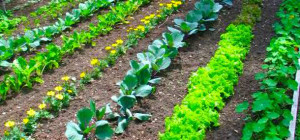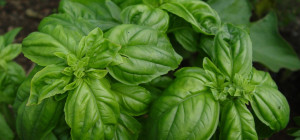 Nothing could be more gratifying than producing your own food in your own personal garden. Plants can be a reflection of your nurturing labour, a proof that hard work in the dirt can, indeed, pay off. Fruit and vegetables are a crucial part of our diet, so why not manage growing some by yourself, if you have a bit of passion, outdoor space and patience for such endeavours? You can always grow some flowers on the side, since their beauty can transmit a sense of warmth and color in your home. Let's face it, one of mankind's major technological leaps was when we systematically started cultivating land for the sole purpose of supplying ourselves with the much needed food. Agriculture is in our work description, so if you're up to it, you can always go back to your roots (no pun intended) and see how far we've come in nourishing the earth and our bellies.
Nothing could be more gratifying than producing your own food in your own personal garden. Plants can be a reflection of your nurturing labour, a proof that hard work in the dirt can, indeed, pay off. Fruit and vegetables are a crucial part of our diet, so why not manage growing some by yourself, if you have a bit of passion, outdoor space and patience for such endeavours? You can always grow some flowers on the side, since their beauty can transmit a sense of warmth and color in your home. Let's face it, one of mankind's major technological leaps was when we systematically started cultivating land for the sole purpose of supplying ourselves with the much needed food. Agriculture is in our work description, so if you're up to it, you can always go back to your roots (no pun intended) and see how far we've come in nourishing the earth and our bellies.
Land
First and foremost, nothing could be done if you don't have a working surface. You need to have yourself a spot of land which will be used as a garden. If you lack such an area, there are many ways you can overcome this problem. One way is to simply ask your neighbours, or people you know that have an empty patch of land, to give you their permission to use it for your own green ambitions. The other way is to supply yourself with pots, or even better containers (it's best to buy them during fall). And on top of that, remember to find yourself an inexpensive, or better yet free source of dirt.
Soil
You always need good earth-nourishing and fertile, rich with minerals and organic materials. Everything needed for plants to grow. What's great about soil is that you can actually enhance it yourself with compost. All you need is shredded paper and leaves, don't just throw it away, then fruit and vegetable scraps, coffee grinds and filters, crumbled eggshells, etc. and place it all in the compost bin with soil to bind it all together. Avoid putting fish parts, meat, processed foods, waste, or dead plants, because it can attract maggots, critters and even disease. Once you have all the ingredients, like a cook, you just have to keep it moist, gently heated (as if it's a warm day) and rotate it once a week.
Cultivation
Gardening is a physical challenge, especially because soil has to be turned over so that the seeds can find their way into the ground. Depth and other factors depend on what are you planting in the first place, but you can turn over soil either manually, using a hoe, or a small handheld shovel, which is, truth be told, an intense labour, or you can rent a small tiller, which is much more wallet-friendly if you have large sections of land in your garden that are specified for long-term cultivation. Anything that you don't have in your equipment shed can surely be borrowed from other gardeners. Solidarity is key.
Seeds and watering
Today, many of the seeds that you can acquire are usually hybrids, which means that the plant will be sterile. You won't be able to reserve future seeds of that sort and even if the harvest is bountiful and delicious, you won't be able to duplicate the results. On the other hand, non-hybrids might not always come out plump and juicy, but once you score that golden plant gene pool, there is an extra bonus every year after the harvest - more seeds! So, if it's a good year, why not replicate the success with those perfect tomatoes, potatoes, pumpkins, or whatever has proven to be a remarkable gardening outcome? Also, as we all now, there is no life without water. In the past, we've been relying on rain, rivers and lakes, but the biggest advancement in feeding the plants was the development of irrigation systems. Now, we have access to water with a turn of a tap, but just like using hoes and handheld shovels, using water pots can be tiring. One of the easiest ways to bathe your plants in water is by installing yourself a good old sprinkler system. Simple, efficient and effective.
All in all, nothing would be possible without little education. Read everything you can about growing plants, learn how to care for them, how to plant them, how to feed them. Every plant is different and requires special attention. Keep the weeds away, take preventive measures against pests, diseases and other nuisances and stay patient! The quality and quantity of your produce can pay off tremendously, all you need to focus on is reducing the start-up costs. Everything else is a bit of hard work and a touch of passion. Make it grow!







